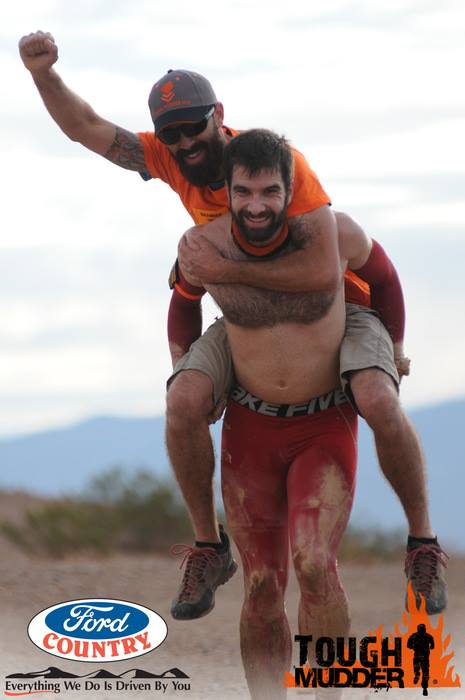
We live in an era of instant gratification, last minute planning, big hopes and even bigger challenges. There are so many exciting and inspiring events out there to choose from that the addicted among us quickly find ourselves doing events weekend after weekend without breaks and a plan.
To grow as an athlete, it is important to define your year. That way you can be a student of your sport, and you can be the best you can be at that one thing. It's impossible to be a world class 100m sprinter and ultramarathonner. As much as ocr athletes compete at multiple distances, you'll find that even the elites don't do as well at all distances.
Define Your Year
A definition can be a race to perform at, a PR to make or a challenge to rise to. What is important is that it occurs far in the future and has clear, objective parameters for success that are based on you, not anyone else.
When you define your year, it doesn't mean that you do only one thing all year. It just means that you want to structure your schedule and the challenges you tackle. I've chosen to define my year in a few different ways the past few years.
 I define this year by World's Toughest Mudder. As a 24 hour race, I'll be focusing on endurance, mental toughness and nutrition. I plan other races to work on specific skills and techniques, like increasing my overall distance. To do this, I'm running a 100-mile trail run in July, as well as the Spartan Ultrabeast in October. I won't worry too much about how I do at these earlier events because it’s all about learning and working towards the ultimate goal.
I define this year by World's Toughest Mudder. As a 24 hour race, I'll be focusing on endurance, mental toughness and nutrition. I plan other races to work on specific skills and techniques, like increasing my overall distance. To do this, I'm running a 100-mile trail run in July, as well as the Spartan Ultrabeast in October. I won't worry too much about how I do at these earlier events because it’s all about learning and working towards the ultimate goal.
Last year, I defined myself by optimizing the 10 miles to half marathon distance. That meant that I worked on what my trainer calls speed endurance: holding a fast pace for a sustained period. That is compared to the raw speed you need for a 5k or the massive endurance you need for an ultramarathon.
In 2012, I defined my training by wanting to lose weight and reignite my passion for running. I tore my hamstring that year so that I couldn't run for three full months. I gained 30lbs. My goals were to run the events in my area, run more and be social in athletics. My training schedule wasn't very structured. It was all about just getting out there, enjoying myself, and exploring the world.
No matter what you define your year based on, remember that training is all about growth. No matter what happens, you will learn about yourself, your body, and the sport. If you let it, it will make you stronger, faster, more confident and inspired to tackle bigger and tougher challenges.
Subtip: Don’t be afraid to redefine your year.
Just because you committed to something in your brain early on doesn’t mean that you need to keep to it. If your original goal is out of reach or is too easy for you, feel free to continually re-assess your progress and redefine your goals. By defining your year, you create purpose and direction for your training. Based on how your training goes, you can discover many new and exciting roads.


Leave A Comment